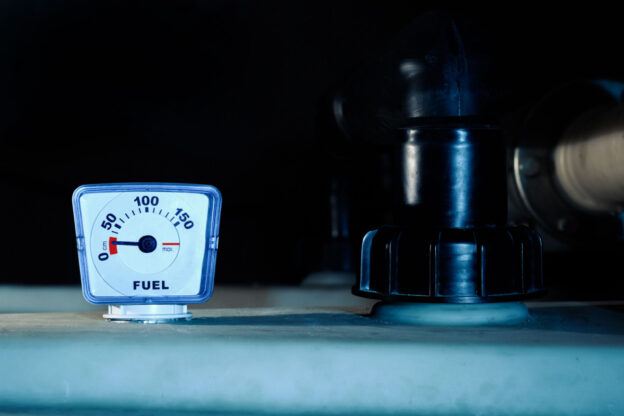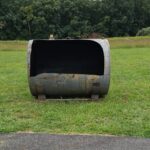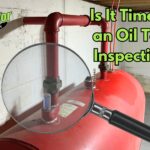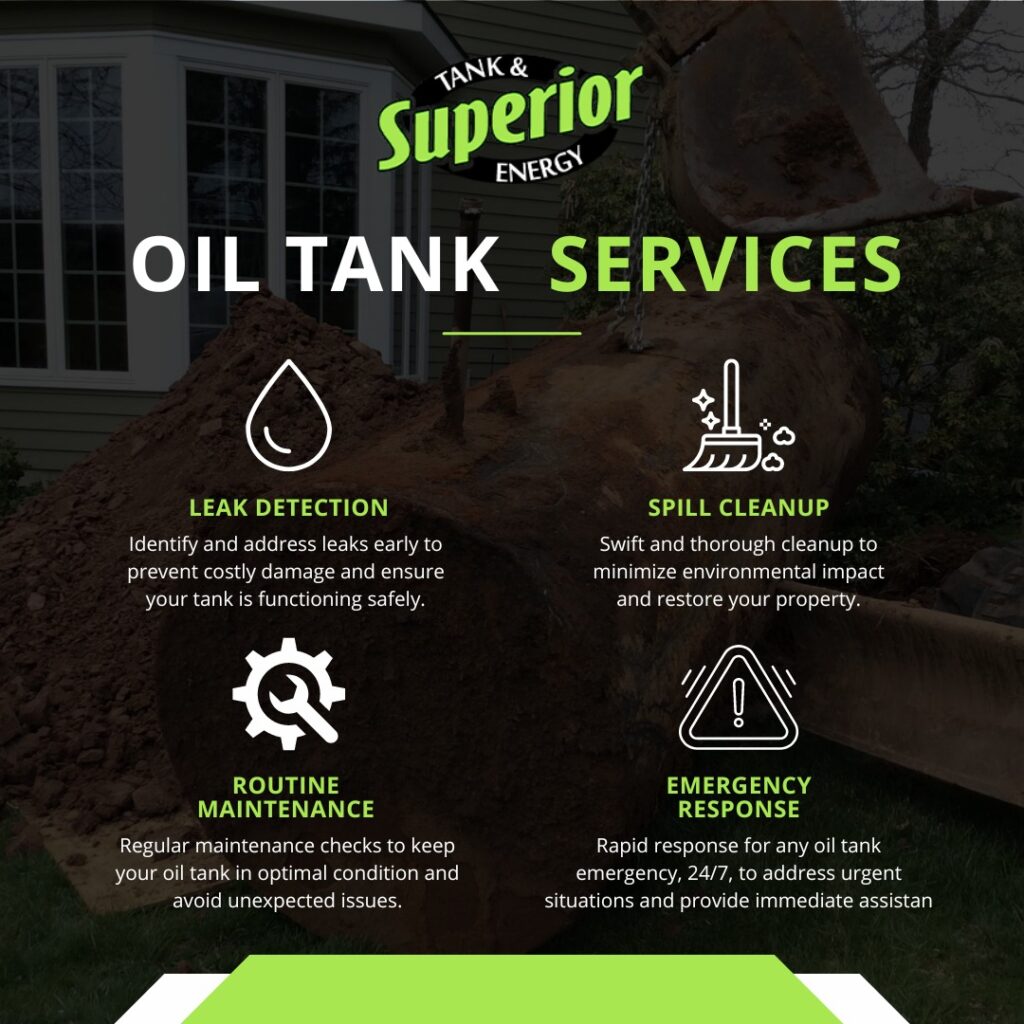
- Posted by: Superior
- 0 Comments
Is It Bad to Leave an Oil Tank Empty?
Is It Bad to Leave an Oil Tank Empty?
As a leading provider of oil tank installation, removal, repair, soil remediation, and emergency oil tank services in NJ and PA, Superior Tank & Energy has encountered numerous questions from our valued clients regarding oil tank maintenance and care. One common question that often arises is, “Is it bad to leave an oil tank empty?” In this blog post, we aim to address this query and shed light on the potential risks associated with leaving an oil tank empty.
The Importance of Proper Oil Tank Maintenance
Maintaining an oil tank is crucial to ensure its longevity and the safety of your property. While some homeowners may choose to keep their tanks empty for various reasons, it is important to understand the potential consequences of this decision. Oil tanks are designed to be used with a certain amount of oil present, and leaving them empty for an extended period can lead to a range of problems.
The Dangers of Leaving Your Oil Tank Empty
- Corrosion and Deterioration: When an oil tank is left empty, the inner surfaces are exposed to air and moisture. This exposure can accelerate the corrosion and deterioration process, leading to rust formation and weakening of the tank structure. Over time, this can result in leaks and potential environmental contamination.
- Soil Instability: Oil tanks are typically installed underground, and the soil around them provides support and stability. If you leave your oil tank empty for an extended period, the soil surrounding the tank may become unstable. This can lead to soil subsidence, which can cause damage to your property’s foundation or even pose a safety risk.
- Moisture Accumulation: Empty oil tanks are more prone to moisture accumulation, especially if any openings or vents are left uncovered. Moisture buildup inside the tank can create an environment conducive to the growth of bacteria and fungi, which can further contribute to corrosion and potential damage.
- Clogging: Empty tanks are more prone to the accumulation of debris, sediment, and sludge. When the tank is refilled after being empty, these contaminants can find their way into the fuel lines and clog the nozzles and filters. This can hinder the proper flow of fuel and impact the performance of the heating system.
- Blockage: If the tank has been left empty for a prolonged period, there is a possibility of moisture condensation inside the tank. This moisture can cause the formation of rust or sediment, which may then block the fuel filters and restrict the flow of oil to the nozzles. This blockage can lead to inefficient combustion, reduced heating efficiency, and potential equipment malfunctions.
- Increased Wear and Tear: When the tank is empty, the fuel pump may draw in air instead of oil, which can put additional strain on the pump. This increased workload can accelerate the wear and tear of the pump and other components, potentially leading to premature failure or the need for more frequent maintenance.
To mitigate these potential issues, it is recommended to properly maintain and monitor your oil tank, ensuring it is regularly filled and that fuel filters and nozzles are inspected and cleaned or replaced as needed. Regular maintenance and timely refilling can help prevent clogging, blockage, and unnecessary wear on the system, ensuring the efficient and reliable operation of your heating equipment.
The Importance of Oil Tank Removal
If you leave your oil tank empty and decide not to use it anymore, it is highly recommended to consider oil tank removal. Oil tank removal is a comprehensive process that involves safely extracting the tank from the ground, ensuring any remaining oil is properly disposed of, and remediating any soil contamination that may have occurred.
By opting for professional oil tank removal services, such as those offered by Superior Tank & Energy, you can have peace of mind knowing that experts will handle the entire process efficiently and effectively. Our skilled team has extensive experience in oil tank removal in NJ and PA, and we follow all necessary regulations and guidelines to ensure a smooth and environmentally responsible removal process.
Oil Tank Repair and Emergency Services
If you’re facing issues with your oil tank, such as leaks, structural damage, or faulty components, it is essential to address them promptly. Putting off repairs can exacerbate the existing problems and potentially lead to more extensive damage.
Superior Tank & Energy provides top-notch oil tank repair services in Lehigh County, PA, and surrounding areas. Our team of professionals is well-equipped to handle a wide range of repair needs, ensuring that your oil tank is restored to optimal functionality.
Additionally, we understand that emergencies can happen at any time. If you find yourself in need of emergency tank services in Philadelphia, PA, you can rely on Superior Tank & Energy to promptly respond to your call and provide the necessary assistance to mitigate any potential risks.
Contact Superior Tank & Energy Today!
In conclusion, leaving your oil tank empty can have detrimental effects on its structural integrity, the surrounding soil, and potentially the environment. If you’re uncertain about the condition of your oil tank or require professional oil tank services, don’t hesitate to contact Superior Tank & Energy. Our knowledgeable team is ready to assist you with oil tank installation, removal, repair, soil remediation, and emergency services. We prioritize safety, efficiency, and environmental responsibility in every project we undertake.
Don’t wait until it’s too late—reach out to us today to ensure the proper maintenance and care of your oil tank. Together, we can keep your property and the environment protected.






Recent Comments